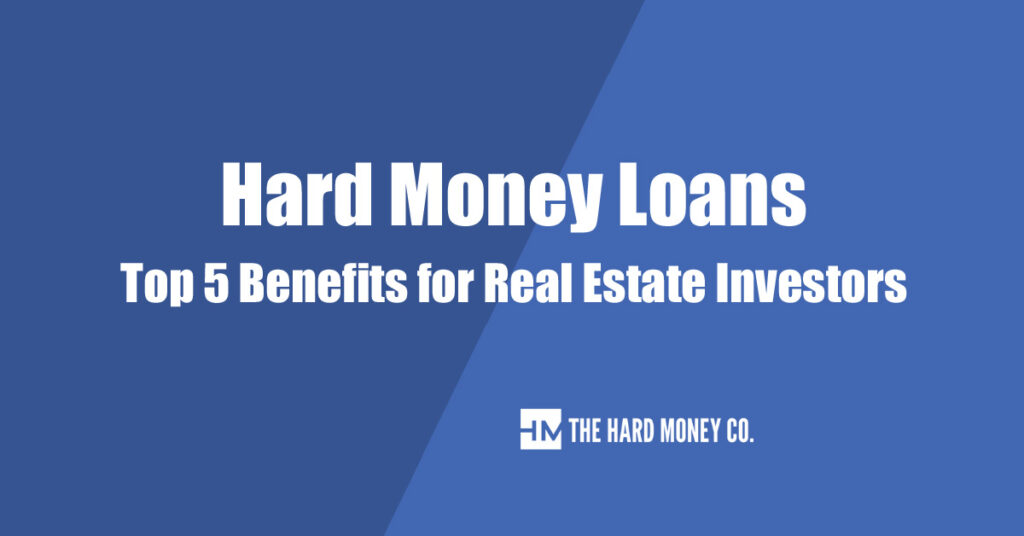May 1st, 2024
When is the Best Time to Get Into Real Estate?
If you’ve been observing the real estate market over the past few years, you’ve witnessed its fluctuations firsthand. Interest rates have hit extreme lows and then peaked to extreme highs. Additionally, the recent housing market was one of the most competitive in memory, characterized by first-time homebuyers with considerable financial resources trying to outbid each other. This demand was unprecedented. Although we’re not yet at a point of balance, we are in a transitional phase that leaves many investors considering their next steps.
Investment Timing
Before going too deep into market timing, it’s important to note: at The Hard Money Co., we advocate that the optimal time to invest in real estate is always now. For those committed to the long haul in this industry, it’s crucial to focus on continually building your portfolio, rather than attempting to enter or exit the market based on optimal conditions. However, it’s still important to consider cyclical trends and timing when developing your strategy as a real estate investor.
Understanding market Cycles
The market encompasses significant macro cycles that are often more apparent in retrospect than in real-time. These cycles include:
The Expansion: During this phase, the market experiences gradual growth. Property values, consumer confidence, and demand all start to rise.
The Peak: This phase marks the highest prices and market activity. While it’s challenging to time exactly, errors in timing can be costly.
The Contraction: In this period, the market falls, and both pricing and demand start to decline. Market activity slows considerably, and sellers may find it difficult to sell their properties.
The Trough: Here is where the market bottoms out. Demand is at an cyclical low, but the recovery period of growth is about to begin.
For real estate investors, it’s important to ID the current cycle stage. Your investment activity and strategies may need to adapt accordingly. Presently, many agree that we’re in a contraction phase.
So, how does this affect your decisions as an investor? Given the high interest rates and declining home prices, is it wise to invest in turn-key properties at their peak valuations now? Likely not. However, might it be a good idea to consider distressed assets, which weren’t inflated by the last peak? This approach could be more viable.
Understanding our current position and anticipated trends is essential for planning your next move.
The Hard Money Co.
Using hard money loans allows real estate investors to maximize leverage when purchasing a property and close within just a few days, all while freeing up their own cash for other uses.
Interest Rate Climate
Another critical factor in timing real estate investments is the current interest rate environment, particularly prevailing mortgage rates, as these directly influence the profitability of your investments. Even if you secure fixed-rate loans, such as those offered by The Hard Money Co., the mortgage rate may still impact your decision to refinance or sell the asset outright once rehabilitation is complete.
While there was an expectation for a drop in interest rates, this seems increasingly unlikely in the near term. How does this affect your portfolio outlook? Many assume that high interest rates should stop deal-making altogether, but the reality could be the opposite. If a deal appears favorable on paper with a 7.5% interest rate today, consider its potential in a more favorable rate environment in the future.
The Impact of Location on Timing
Location is a significant factor in timing real estate investments. Market conditions in San Francisco differ greatly from those in Milwaukee. While it’s essential to understand national trends and the overall market, the dynamics in your local area are most important. Are you monitoring your local market closely? If conditions are poor locally, does that mean they are the same everywhere, or should you consider investing in more favorable markets?
These differences extend beyond state lines, affecting even individual communities. For example, there might be increased demand for small multi-family properties compared to larger single-family homes in the same neighborhood. Stay informed and engaged with your local market to capitalize on opportunities wherever they arise.
Additional Market Timing Factors
Beyond the economic indicators, several other factors can influence the timing of real estate investments:
Political Climate: Election seasons in the U.S. can lead to significant shifts in policy that affect housing markets at local, state, and national levels. The outcome of elections might result in changes in regulations, taxes, or government incentives for homeowners and investors, directly impacting real estate values and investment decisions.
Social Trends: The shift towards remote work has altered residential real estate demand significantly. Areas that traditionally did not attract many residents may become more desirable due to their lower cost of living and improved quality of life, potentially boosting property values in these regions.
Economic Policies: Changes in economic policies, including tax reforms or fiscal stimulus packages, can also play a critical role in shaping the real estate market. These policies can affect investor confidence and spending power, thereby influencing real estate demand and prices.
Each of these factors should be considered in conjunction with others when forming a comprehensive real estate investment strategy. No single factor should dictate your decisions entirely, but a holistic view will help you identify the most opportune moments to act.
Conclusion: Strategic Timing in Real Estate Investment
As mentioned at the beginning, there is no universally good or bad time to invest in real estate. If you’re committed to the long haul, you should aim to build your portfolio consistently. However, understanding and considering the various timing components discussed is crucial when deciding how to act. If you have any questions or need guidance through the complexities of timing your investments, don’t hesitate to contact us at The Hard Money Co. We are here to assist you with any challenges you might face in your investment journey.
Recent Blog Posts
Connect with The Hard Money Co.
Sign up for our mailing list and receive educational material, insights into your market, and exciting offerings from our partners.







